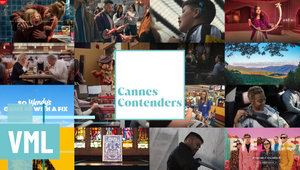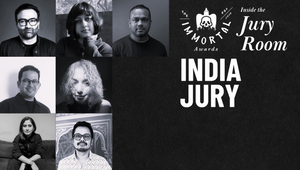
Planning for the Best: A Passion for Consumer Behaviour and Design with Richa Dholi

Based in Mumbai, Richa Dholi is the strategy lead on Wunderman Thompson India's Unilever brands, lending her extensive experience in the marketing and digital ecosystem to the businesses.
A planner at heart and a writer by passion, Richa has honed her strategic thinking and critical insights working with leading FMCG and lifestyle brands at Capgemini, Ogilvy, Lowe, McCann and most recently at India’s very own Twitter, Koo.
Richa's passion for consumer behaviour and design thinking earned her recognition as 'The Global Marketer Award during her time at Capgemini'.
LBB> What do you think is the difference between a strategist and a planner? Is there one?
Richa> A strategist is responsible for developing an overarching plan or approach that defines how a company or organisation will achieve its goals. They focus on understanding the big picture and identifying the most effective ways to achieve long-term success.
On the other hand, a planner is responsible for developing specific, actionable plans to execute the strategy. They focus on how to achieve strategic goals and objectives.
Nike is an example of a brand that has a clear difference between a strategist and a planner. Nike's brand strategy focuses on inspiring and empowering athletes worldwide, with messaging that emphasizes the "just do it" attitude. A strategist would develop this overarching brand strategy, while a planner would execute it by creating specific marketing tactics such as product launches, social media campaigns, and athlete sponsorships.
In short, a strategist needs to be a “mile wide and at least an inch or two deep” on a wide range of topics, from brand strategy to creative thinking, from customer dynamics to business dynamics, and from the changing landscape of media and culture to the specifics of marketing plan.
LBB> And which description do you think suits the way you work best?
Richa> Sherlock Holmes once said that a successful detective requires four attributes: observation, deduction, knowledge, and creativity. These attributes also apply to being a successful strategist. As a strategist, I see myself as a thinker, attempting to solve a mystery or problem related to consumers, businesses, brands, or the universe itself!
LBB> We’re used to hearing about the best creative advertising campaigns, but what’s your favourite historic campaign from a strategic perspective? One that you feel demonstrates great strategy?
Richa> In a country where traffic often causes delays, known as 'Indian Stretchable Time', Domino's Pizza made a bold move when it entered India's nascent food delivery market over a decade and a half ago. They challenged consumers with a too-good-to-be-true offer: 30 minutes of free pizza delivery. The prospect of getting food delivered within 30 minutes drove curious customers to try it out.
Domino's captured people's unspoken thoughts in their TV commercial, featuring heavy rain and traffic, with the protagonist singing that he's going to get his pizza for free. Behind this promise was a solid distribution network of retail chains equipped with the capability, delivery partners, and equipment to deliver a hot, piping pizza in 30 minutes. The whole ecosystem was curated to deliver on this promise.
Fast forward to today, Domino's is the number one pizza brand in India, thanks to its commitment to delivering hot, delicious pizza on time, every time.
LBB> When you’re turning a business brief into something that can inform an inspiring creative campaign, do you find the most useful resource to draw on?
Richa> The most helpful resource to draw on is a thorough understanding of the target audience. By researching and gaining insights into the needs, desires, and behaviours of the target audience, I can develop a creative approach that resonates with them and effectively communicates the desired message. It's important to remember that the creative campaign is not just about showcasing a product or service but about connecting with the audience in a meaningful way.
LBB> What part of your job/the strategic process do you enjoy the most?
Richa> For me, arriving at an insight that unlocks a solution is incredibly fulfilling, like the psychological insight behind pricing products at 49, 99, or 999. Throughout the strategic process, I enjoy the pursuit of finding answers, from questioning the brief to discovering consumer insights. I enjoy immersing myself in research and data and crafting a plan that effectively solves a problem or achieves a goal. Witnessing the successful outcomes of a well-designed strategy for a business or organization is what makes this work truly exciting to me.
LBB> What strategic maxims, frameworks or principles do you find yourself going back to over and over again? Why are they so useful?
Richa> A combination of several techniques works best for me, including SWOT analysis and The Four Points Framework by Mark Pollard. Additionally, I rely on a method shared by Julian Cole to arrive at insights, where I add the word "because" to an observation to arrive at an insight. For example, "Nostalgia makes our heartache to go back in time because as time passes by, the mind alters the memories and presents them in ways that will appeal to us.
LBB> What sort of creatives do you like to work with? As a strategist, what do you want them to do with the information you give them?
Richa> I like to work with creatives who are open-minded, collaborative, and willing to push boundaries. I appreciate creatives who are fearless in challenging the brief and pushing back when necessary but can also take constructive feedback and use it to refine their ideas.
LBB> There’s a negative stereotype about strategy being used to validate creative ideas, rather than as a resource to inform them and make sure they’re effective. How do you make sure the agency gets this the right way round?
Richa> To ensure that strategy is effectively used to inform and shape creative ideas, it's crucial to establish a culture of collaboration and open communication between the strategy team and the agency, with a shared focus on achieving the best possible outcomes for the client.
From the outset, clear communication and expectations should be established, emphasizing that strategy's role is not just to approve or reject creative ideas but to provide insights and guidance that will help inform and shape those ideas. Involving the agency in the strategic process and encouraging collaboration and feedback throughout can ensure that the creative team understands the strategic objectives and is able to incorporate them into their work from the beginning.
LBB> What have you found to be the most important consideration in recruiting and nurturing strategic talent?
Richa> I seek individuals who bring vitality, diverse experiences, and powerful storytelling skills. It's crucial that candidates showcase a sincere desire to learn and remain current on industry trends and advancements. Above all else, when working, I value a "dolphin" mentality - an upbeat, can-do attitude.
Fundamentally, my approach is to allow individuals to be themselves and capitalize on their strengths. By helping them feel like heroes in their own eyes through their contributions, I foster a supportive and cooperative work environment that promotes candid communication and a willingness to take calculated risks. This enables us to cultivate top talent and inspire them to present their finest concepts and ideas.
Ultimately, I believe in giving my all for my team, trusting that karma will take care of the rest.
LBB> In recent years it seems like effectiveness awards have grown in prestige and agencies have paid more attention to them. How do you think this has impacted on how strategists work and the way they are perceived?
Richa> Agencies now place greater emphasis on demonstrating measurable results and ROI for their clients, which has led to an increased focus on the effectiveness of their strategies.
This shift in focus has led to strategists adopting a more data-driven approach. They rely more heavily on analytics and insights to inform their strategies and measure their success. Additionally, strategists are now more accountable for the outcomes of their work, which has driven them to take a more rigorous and analytical approach to strategy development.
It is encouraging to see strategists integrated into the creative team rather than viewed as an additional burden.
LBB> Do you have any frustrations with planning/strategy as a discipline?
Richa> Developing a strategy can be a challenging process that can take an emotional toll. The need to navigate prolonged periods of uncertainty, ongoing interpersonal tension and to find enjoyment in tackling complex problems and gaining insights can be exhausting. However, this emotional journey can also be deeply rewarding. Even though it can be frustrating and overwhelming, strategists often develop a deep love and appreciation for the process.
LBB> What advice would you give to anyone considering a career as a strategist/planner?
Richa> Prepare to answer a lot of questions with 'it depends'.
Being a strategist is like being an electrician, except you're dealing with ideas instead of wires. And just like electricity, strategy is always on - it never takes a break. So, keep learning and practising because that's the only way to keep the lights on in your strategy game.















